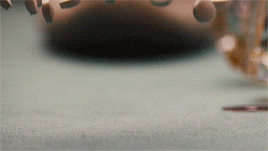If you've spent any significant time on Instagram over the past few years, you've probably seen quite a few ads for various types of hair vitamins and supplements. These products claim to provide extra nutrients that will assist in hair growth, shine, strength, et cetera, and are typically sold in gummy or pill form. The most successful brands are well-aware that their primary audience is on Instagram - their products are sold in pretty bottles and jars that have made taking vitamins an exciting event worthy of posting about on social media.

But do these products really deliver on their claims? Let's talk about the nutritional science behind the 12 billion dollar supplement industry.
How does nutrition affect hair growth?
Just like the rest of your body, hair follicles require energy and nutrients from food to properly function. When you're a person who is malnourished your hair follicles don't produce hair in the same way that they do when your body has the nutrients it needs.
Malnourishment can happen from a ton of different factors varying from pre-existing genetic conditions to dietary imbalances - for example, if you're on a diet that deprives your body of essential nutrients like proteins, minerals, essential fatty acids, vitamins, and/or a sufficient number of calories, you become at risk for becoming malnourished over time. Balance matters!
Do I need extra vitamins for better hair growth?
If you already maintain a balanced diet, you're likely already receiving all the nutrients your hair needs for optimal growth. Because that's the thing - your hair follicles only need a certain amount of internally provided nutrients to create optimal growth. Your hair follicles function by taking what they need, and ignoring the rest, so anything that's really beyond what's necessary is most likely going to be flushed out of your system without being used. It's pretty common for supplements to include labels that say one pill includes over a thousand percent of a certain vitamin or mineral, but 900% of that mineral might just be excreted from your body without any benefit to your hair at all.
Food vs vitamins for hair health- which is better?
Studies have repeatedly found that nutrients provided by food sources are far more easily processed by the human body than those found in supplements. Further, food sources are less dangerous to overall health. Supplements can make it easy for consumers to over-consume certain vitamins, which can lead to adverse health events that are best avoided if you want to live a healthy lifestyle.

This is not to say that supplements have no practical value. They can be useful if you are a person with a specific dietary need, but it is absolutely best to take them under the supervision of a doctor. Doctors are unbiased experts and should be able to guide you in finding a supplement that will best fulfill your body's unique needs.
Our Expert Advice:
Ultimately, if you're a person who wants to improve hair health and you already maintain a healthy diet, supplements won't do that much for you. We recommend instead using a great set of personalized products and engaging in hair healthy habits.
Love,
The Formulate Team





